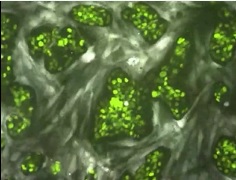
At the University of Pittsburgh Swanson School of Engineering, the Tumor Microenvironment Engineering Laboratory (TME Lab) is where researchers employ a quantitative approach that integrates microfluidics, systems biology modeling, and in vivo experiments to investigate the role of the tumor microenvironment on breast and ovarian cancer growth, metastasis, and drug resistance. The goal of the TME lab research program is to discover biomarkers that guide new drug development and improve prognosis, develop new strategies to optimize existing treatment protocols, and engineer microfabricated tools that enable screening and personalization of cancer therapies.
McGowan Institute for Regenerative Medicine affiliated faculty member Ioannis Zervantonakis, PhD, an Assistant Professor in Pitt’s Bioengineering Department, a member of the UPMC Hillman Cancer Center, and the leader of the TME Lab, recently spoke with Regenerative Medicine Today host John Murphy, McGowan Institute Executive Director, about
- bioengineered models of the tumor microenvironment research program efforts
- targeted therapies for tumors (including metastatic tumors), personalized tumor therapies, and what may soon be ready for the clinic
- localized released technologies, single cell analysis, and regenerative medicine applications
Listen to their conversation here.
Illustration: Breast cancer cells (green) interacting with fibroblasts (white) under baseline conditions. TME Lab.
